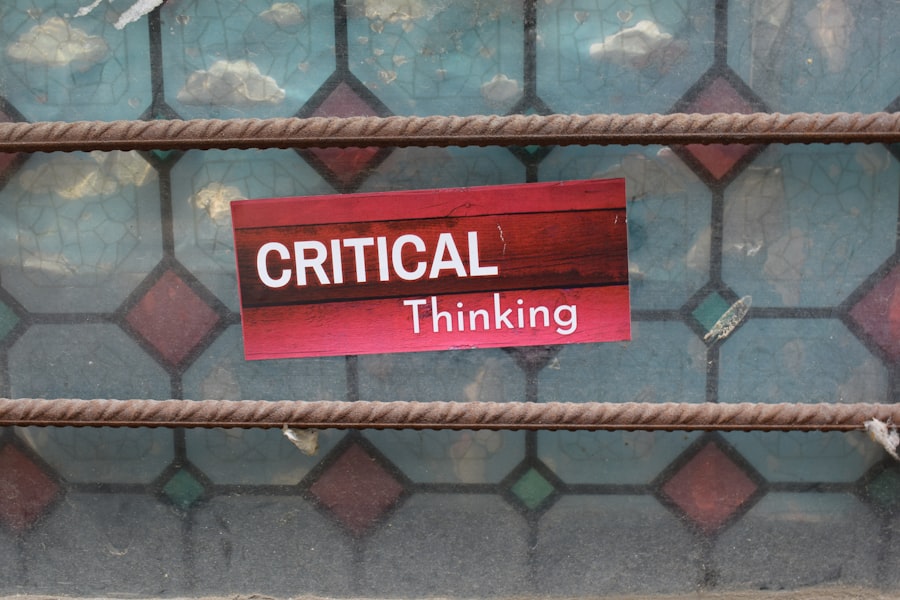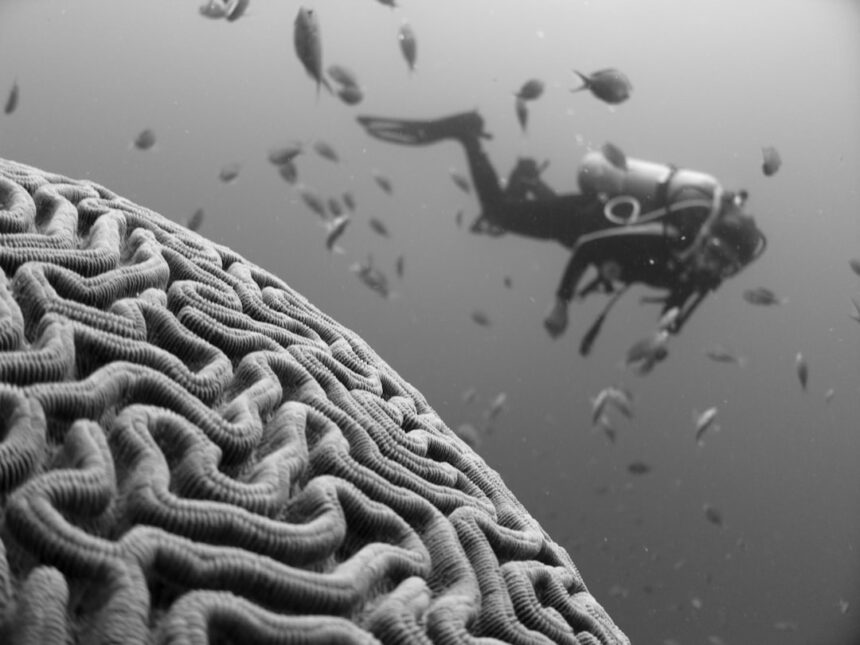Metacognition is a term that refers to the awareness and understanding of one’s own thought processes. It encompasses two primary components: knowledge about cognition and regulation of cognition. When you engage in metacognitive thinking, you are not just processing information; you are also reflecting on how you learn, what strategies work best for you, and how you can improve your understanding.
This self-awareness allows you to monitor your cognitive processes, making adjustments as needed to enhance your learning experience. Essentially, metacognition is thinking about your thinking, and it plays a crucial role in how effectively you can learn and apply new information. As you delve deeper into metacognition, you may find that it involves both declarative knowledge—knowing what strategies exist and when to use them—and procedural knowledge—knowing how to implement those strategies effectively.
For instance, you might recognize that summarizing information helps you retain it better, but you also need to know how to summarize effectively. This dual aspect of metacognition empowers you to take control of your learning journey, enabling you to become a more effective learner by actively engaging with your cognitive processes.
Key Takeaways
- Metacognition is the awareness and understanding of one’s own thought processes.
- Metacognition plays a crucial role in learning, problem-solving, and self-regulated learning.
- Strategies for developing metacognition skills include setting goals, monitoring progress, and using self-questioning techniques.
- Reflection is a key component of metacognition, allowing individuals to evaluate their thinking and learning processes.
- Encouraging metacognitive thinking in children can be done through activities that promote self-reflection and self-assessment.
The Importance of Metacognition in Learning
The significance of metacognition in learning cannot be overstated. When you cultivate metacognitive skills, you enhance your ability to understand and manage your learning processes. This self-regulation leads to improved academic performance, as you become more adept at identifying what you know and what you need to work on.
By being aware of your strengths and weaknesses, you can tailor your study habits and strategies to suit your individual needs, ultimately leading to a more personalized and effective learning experience. Moreover, metacognition fosters a growth mindset. When you recognize that learning is a process that involves trial and error, you become more resilient in the face of challenges.
Instead of viewing setbacks as failures, you learn to analyze what went wrong and adjust your approach accordingly. This adaptability not only enhances your academic performance but also prepares you for lifelong learning, equipping you with the skills necessary to navigate an ever-changing world.
Strategies for Developing Metacognition Skills

To develop your metacognitive skills, consider implementing specific strategies that encourage self-reflection and critical thinking. One effective approach is to maintain a learning journal where you document your thoughts about your learning experiences. In this journal, you can reflect on what strategies worked well for you, what didn’t, and how you can improve in the future.
By regularly engaging in this reflective practice, you will become more attuned to your cognitive processes and better equipped to make informed decisions about your learning. Another strategy is to set specific goals for your learning. By establishing clear objectives, you create a roadmap for your educational journey.
As you work towards these goals, periodically assess your progress and adjust your strategies as needed. This ongoing evaluation not only reinforces your metacognitive awareness but also helps you stay focused and motivated throughout the learning process.
The Role of Reflection in Metacognition
| Metrics | Data |
|---|---|
| Number of reflective prompts | 20 |
| Percentage of students engaging in reflection | 85% |
| Improvement in metacognitive awareness | 25% |
| Effectiveness of reflection on learning outcomes | High |
Reflection is a cornerstone of metacognitive practice. When you take the time to reflect on your learning experiences, you gain valuable insights into your cognitive processes. This reflection can take many forms, from informal discussions with peers to structured self-assessments.
Regardless of the method, the act of reflecting allows you to step back from the immediate task at hand and consider the broader implications of your learning. Incorporating reflection into your routine can lead to deeper understanding and retention of information. For instance, after completing a project or exam, take a moment to think about what strategies were effective and which ones fell short.
By analyzing these experiences, you can identify patterns in your thinking and behavior that will inform your future learning endeavors. This continuous cycle of reflection and adjustment is essential for developing strong metacognitive skills.
How to Encourage Metacognitive Thinking in Children
Encouraging metacognitive thinking in children is vital for their academic development and lifelong learning skills. One effective way to foster this awareness is through modeling metacognitive strategies during lessons or activities. As an adult or educator, verbalize your thought processes as you tackle a problem or complete a task.
By demonstrating how to think critically about one’s own thinking, you provide children with a framework they can emulate. Additionally, create an environment that promotes questioning and exploration. Encourage children to ask themselves questions about their understanding and approach to tasks.
For example, prompt them with questions like “What do I already know about this topic?” or “What strategy can I use to solve this problem?” By guiding them to think about their own thought processes, you empower them to take ownership of their learning journey.
Metacognition in Problem-Solving

Metacognition plays a crucial role in problem-solving by enabling you to approach challenges with a strategic mindset. When faced with a complex problem, engaging in metacognitive thinking allows you to assess the situation critically and determine the best course of action. You can evaluate the strategies at your disposal and select the most appropriate one based on past experiences and outcomes.
Moreover, metacognitive awareness helps you monitor your progress as you work through a problem. By regularly checking in with yourself—asking questions like “Am I on the right track?” or “What adjustments do I need to make?”—you can stay focused and adapt your approach as necessary. This self-regulation not only enhances your problem-solving abilities but also builds confidence in your capacity to tackle future challenges.
Metacognition and Self-Regulated Learning
Self-regulated learning is closely intertwined with metacognition, as both concepts emphasize the importance of taking control of one’s own learning process. When you engage in self-regulated learning, you set goals, monitor your progress, and reflect on your experiences—all key components of metacognitive practice.
To cultivate self-regulated learning through metacognition, establish routines that promote goal-setting and self-assessment. For instance, before starting a new unit or project, outline specific objectives for what you hope to achieve. As you progress, regularly check in with yourself to evaluate whether you’re meeting those goals and adjust your strategies accordingly.
This cycle of planning, monitoring, and reflecting will enhance both your metacognitive skills and overall learning outcomes.
The Connection Between Metacognition and Critical Thinking
Metacognition is inherently linked to critical thinking; both involve higher-order cognitive processes that require reflection and analysis. When you engage in critical thinking, you’re not just absorbing information; you’re evaluating its validity, relevance, and implications. Metacognitive awareness enhances this process by prompting you to consider how you’re approaching problems and whether your reasoning is sound.
By developing metacognitive skills, you become more adept at recognizing biases in your thinking and questioning assumptions that may cloud your judgment. This heightened awareness allows for more nuanced analysis and better decision-making. As a result, cultivating metacognition not only improves your critical thinking abilities but also enriches your overall intellectual engagement with the world around you.
Metacognition and Academic Success
The relationship between metacognition and academic success is well-documented; students who engage in metacognitive practices tend to perform better academically than those who do not. By fostering an awareness of their own cognitive processes, students can identify effective study strategies, manage their time efficiently, and approach assessments with confidence. This proactive engagement leads to improved retention of information and higher levels of achievement.
Furthermore, metacognitive skills contribute to greater motivation and persistence in academic pursuits. When students understand how they learn best and can monitor their progress toward goals, they are more likely to stay engaged and committed to their studies. This sense of ownership over their learning journey not only enhances academic performance but also instills a lifelong love for learning.
Metacognition in the Workplace
In the workplace, metacognition plays a vital role in professional development and problem-solving capabilities. As employees navigate complex tasks and collaborate with colleagues, being aware of their own thought processes allows them to make informed decisions and adapt their approaches as needed. This self-awareness fosters effective communication and teamwork, as individuals can articulate their reasoning and seek feedback from others.
Moreover, cultivating metacognitive skills in the workplace encourages continuous improvement and innovation.
By regularly assessing their performance and seeking ways to enhance their skills, they contribute not only to their own success but also to the overall effectiveness of the organization.
Cultivating Metacognition for Personal Growth
Cultivating metacognition is not just beneficial for academic or professional success; it also plays a significant role in personal growth. By developing self-awareness regarding your thoughts, emotions, and behaviors, you can make more informed choices that align with your values and goals. This introspection allows for greater emotional intelligence and resilience as you navigate life’s challenges.
To foster personal growth through metacognition, engage in regular self-reflection practices such as journaling or mindfulness meditation. These activities encourage deeper insights into your motivations and thought patterns while promoting a greater understanding of how these factors influence your actions. As you cultivate this awareness, you’ll find yourself better equipped to navigate life’s complexities with confidence and clarity.
In conclusion, metacognition is an essential skill that enhances learning across various domains—academic success, problem-solving abilities, workplace effectiveness, and personal growth. By understanding its components and actively engaging in reflective practices, you can develop stronger metacognitive skills that empower you throughout life’s journey.
Metacognition skills are essential for effective learning and personal development, as they involve the ability to think about one’s own thinking processes. These skills enable individuals to plan, monitor, and evaluate their learning strategies, leading to improved problem-solving and decision-making abilities. For those interested in enhancing their metacognitive abilities, a related article on this topic can be found on Productive Patty’s website. This article delves into practical strategies for developing metacognition skills and offers insights into how these skills can be applied in various aspects of life. To explore this further, you can read the article by visiting Productive Patty’s Sample Page.
FAQs
What are metacognition skills?
Metacognition skills refer to the ability to think about and control one’s own thinking processes. This includes being aware of one’s own thoughts, understanding how to approach a problem, and being able to monitor and adjust one’s thinking as needed.
Why are metacognition skills important?
Metacognition skills are important because they help individuals become more effective learners. By being aware of their own thinking processes, individuals can better understand how to approach a task or problem, monitor their progress, and make adjustments as needed. This can lead to improved academic performance and problem-solving abilities.
What are some examples of metacognition skills?
Examples of metacognition skills include self-reflection, goal setting, planning and organizing, monitoring one’s own understanding, and evaluating one’s own performance. These skills can be applied to various tasks, such as studying for an exam, completing a project, or solving a complex problem.
How can metacognition skills be developed?
Metacognition skills can be developed through various strategies, such as teaching students specific metacognitive strategies, providing opportunities for self-reflection and self-assessment, and encouraging students to set goals and monitor their progress. Additionally, practicing metacognitive skills in different contexts can help individuals become more proficient in using them.




